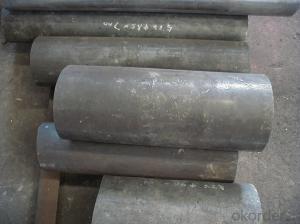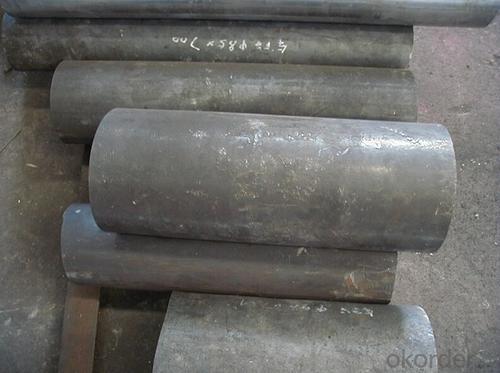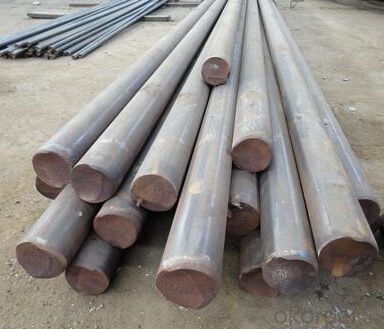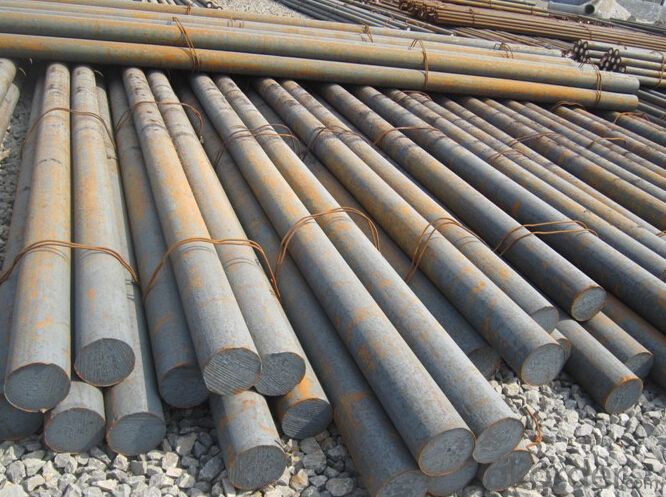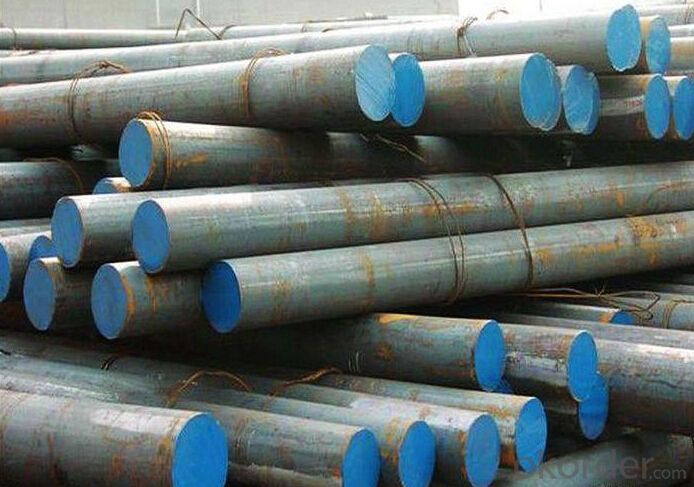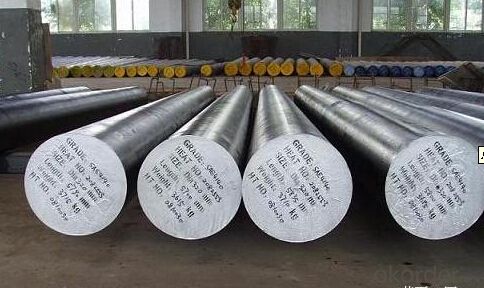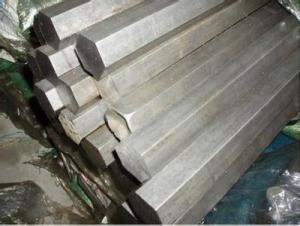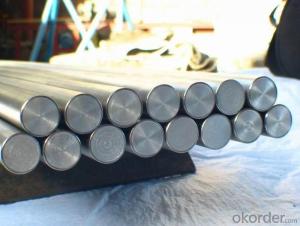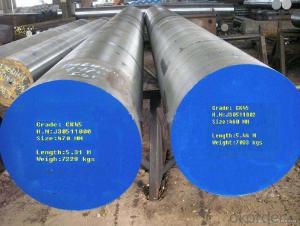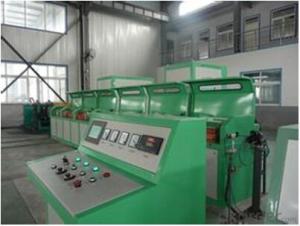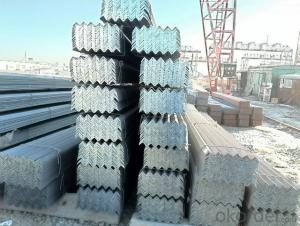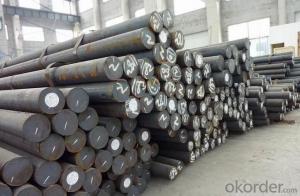Annealed Forged SKD11 Alloy Tool Steel Bar
- Loading Port:
- Qingdao
- Payment Terms:
- TT OR LC
- Min Order Qty:
- 5 m.t.
- Supply Capability:
- 100000 m.t./month
OKorder Service Pledge
Quality Product, Order Online Tracking, Timely Delivery
OKorder Financial Service
Credit Rating, Credit Services, Credit Purchasing
You Might Also Like
Specification
Type:
Carbon Steel,Spring Steel,Bearing Steel,Gear Steel,Deformed Steel,Stainless Steel,Alloy Steel
Shape:
Steel Coil,Steel Sheet,Steel Wire Rod,Steel Flat Bar,Steel Square Bar,Steel Angle,Steel Round Bar,Steel Billets
Technique:
Hot Rolled,Cold Rolled,Cold Drawn,ERW,Forged,Saw,Extruded,EFW,Spring
Surface Treatment:
Galvanized,Coated,Copper Coated,Color Coated,Oiled,Dry,Chromed Passivation,Polished,Bright,Black,PVDF Coated
Certification:
ISO,SGS,BV,IBR,RoHS,CE,API,BSI,UL
Thickness:
50-500mm
Width:
50-500mm
Length:
6-12m
Outer Diameter:
50-500mm
Net Weight:
100kg
Packaging:
seaworthy packaging
Annealed Forged SKD11 Alloy Tool Steel Bar
Detailed Information of Annealed Forged SKD11 Alloy Tool Steel Bar
| Name | Steel Round Bar |
| Shape | Round Bar/Square Bar/Flat Bar/Plate/Wire |
| Standard | GB/ASTM/SAE/AISI/DIN/JIS/EN/BS |
| Surface Treatment: | Black/Peeling/Polished/Machined |
| Delivery Condition: | Hot Rolled or Forged/Peeled or Black Surface |
| Test | SGS/UT 100% Elements Testing |
| Certificate: | ISO/Mill Certificate |
| Service: | 24 hours online service / |
| more than 20 years trading and manufacture | |
| Quality Assurance: | the third party inspection, such as SGS, BV, TUV…etc. is acceptable |
| Packaging Details: | Seaworthy Packaging or as per customer's packing instruction |
Product Overviews of Annealed Forged SKD11 Alloy Tool Steel Bar
| Product Name | Typical Grades | Diameter(mm) | Standard Adopted |
| Carbon Steel | 20 (1020/S20C/C22) | ||
| 40 (1040/S40C/C40) | Ø16-Ø300 | ||
| 45 (1045/S45C/C45) | |||
| Bearing Steel | GCr9 (51100/SUJ1) | ||
| GCr15 (52100/SUJ2/100Gr6) | Ø12-Ø250 | ||
| GCr9SiMn (A485-Gr.1/SUJ3) | GB/SAE/ | ||
| Cr-Mo Steel | 20Cr (5120/SCr420H/20Cr4) | JIS/DIN | |
| 40Cr (5140/SCr440/41Cr4) | Ø12-Ø250 | ||
| 42CrMo(4140/SCM440/42CrMo4) | |||
| Gear Steel | 20CrNiMo | ||
| 20CrMn(5115/SMnC420/20MnCr5) | Ø16-Ø600 | ||
| 20CrNiMo(8620/SNCM220/20CrMiMo2) |
Company Introduction of Annealed Forged SKD11 Alloy Tool Steel Bar
CNBM International Corporation is the most import and export platform of CNBM group(China National Building Material Group Corporation) ,which is a state-owned enterprise, ranked in 270th of Fortune Global 500 in 2015.
With its advantages, CNBM International are mainly concentrate on Cement, Glass, Iron and Steel, Ceramics industries and devotes herself for supplying high quality series of refractories as well as technical consultancies and logistics solution.
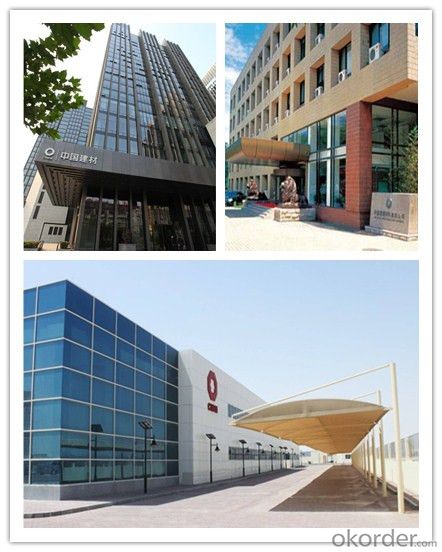
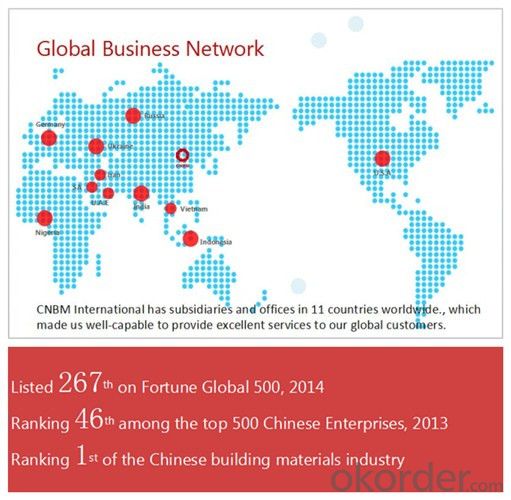
| After-sale service | l CNBM provides the services and support you need for every step of our cooperation. We’re the business partners you can trust; you can relax and get on with doing business. |
| l For any problem, please kindly contact us at any your convenient time, we’ll reply you in our first priority within 24 hours | |
| Advantages | l Industry experience over 20 years. |
| l Shipment of goods -More than 70 countries worldwide. | |
| l The most convenient transport and prompt delivery. | |
| l Competitive price with best service. | |
| l High technical production line with top quality products. | |
| l High reputation based on best quality products. | |
Packaging & Delivery of Annealed Forged SKD11 Alloy Tool Steel Bar
| Packaging Detail | Sea worthy packing /as per customer's packing instruction |
| Delivery Detail | 15 ~ 40 days after receiving the deposit |
Products Show
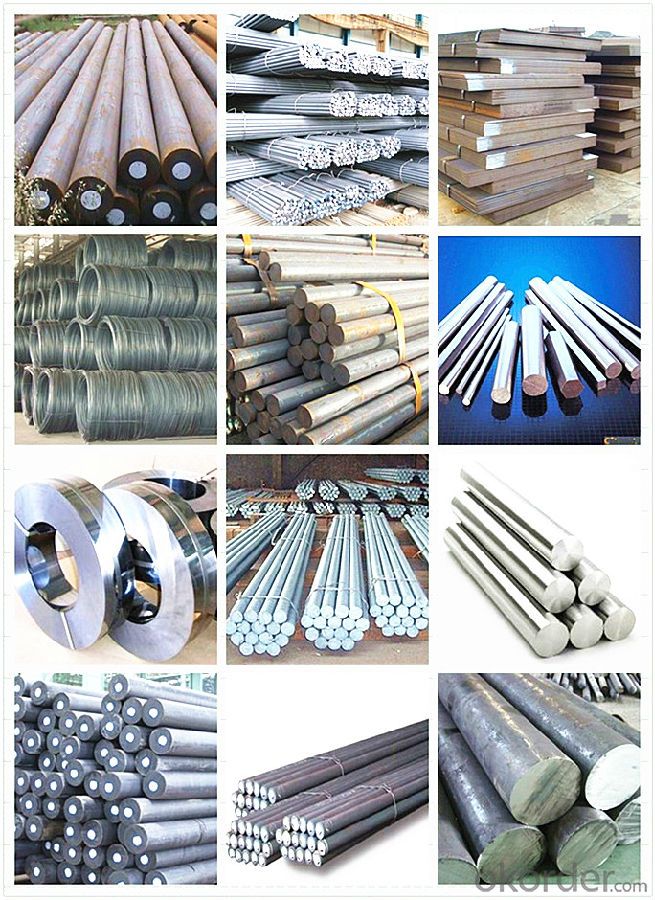
FAQ:
| Are you a trading company or manufacturer? | Manufacturer |
| What’s the MOQ? | 1000m2 |
| What’s your delivery time? | 15-20 days after downpayment received |
| Do you Accept OEM service? | Yes |
| what’s your delivery terms? | FOB/CFR/CIF |
| What's the Payment Terms? | 30% as deposit,70% before shipment by T/T |
| Western Union acceptable for small amount. | |
| L/C acceptable for large amount. | |
| Scrow ,Paybal,Alipay are also ok | |
| Why choose us? | Chose happens because of quality, then price, We can give you both. Additionally, we can also offer professional products inquiry, products knowledge train (for agents), smooth goods delivery, excellent customer solution proposals. |
| What's your available port of Shipment? | Main Port, China |
| What’s your featured services? | Our service formula: good quality+ good price+ good service=customer's trust |
| Where are your Market? | Covering more than 160 countries in the world |
- Q: How does special steel perform in extreme temperature conditions?
- Special steel is designed to perform exceptionally well in extreme temperature conditions. It has a high tolerance for both low and high temperatures, allowing it to maintain its structural integrity and mechanical properties even in the harshest environments. This makes special steel an ideal choice for applications that involve extreme heat or cold, such as aerospace, energy production, and industrial processes.
- Q: How does special steel perform in electrical conductivity applications?
- Special steel, which is also known as stainless steel, offers exceptional electrical conductivity properties in a wide range of applications. It finds extensive use in electrical engineering and electronics owing to its high resistance against corrosion and low electrical resistance. By incorporating specific alloys like chromium and nickel, its conductivity is further enhanced, making it the ideal option for efficient electricity conduction. Within electrical conductivity applications, special steel demonstrates low resistivity, enabling the seamless flow of electrical current with minimal energy loss. Its low resistance plays a vital role in minimizing heat generation, which is crucial for preventing overheating and ensuring the efficient functioning of electrical components. Special steel also possesses outstanding magnetic properties, making it a suitable choice for applications that demand both electrical conductivity and magnetic strength. This attribute proves particularly beneficial in the production of transformers, motors, and generators. Furthermore, special steel boasts exceptional durability and the ability to withstand harsh environmental conditions, making it well-suited for outdoor applications. Its corrosion resistance prevents the formation of rust, ensuring a long lifespan and consistent performance even in challenging environments. In conclusion, special steel is an excellent material for electrical conductivity applications due to its low electrical resistance, high corrosion resistance, and exceptional durability. Its unique properties make it the preferred choice in various industries that rely on efficient and dependable electrical conductivity.
- Q: Is special steel suitable for manufacturing surgical instruments?
- Yes, special steel is suitable for manufacturing surgical instruments. Special steel, also known as stainless steel, is commonly used in the production of surgical instruments due to its unique properties. It is highly resistant to corrosion, which is essential in a surgical setting where instruments come into contact with bodily fluids. Special steel is also durable and can withstand repeated sterilization processes without losing its functionality or structural integrity. Furthermore, it is non-magnetic, making it suitable for use in MRI and other medical imaging procedures. Overall, special steel provides the necessary qualities required for manufacturing surgical instruments, ensuring their reliability, longevity, and safety for medical professionals and patients alike.
- Q: What are the challenges in forging special steel?
- Forging special steel poses several challenges due to its unique composition and properties. Firstly, special steels often have high carbon content, making them harder to forge compared to lower carbon steels. The high carbon content increases the risk of cracking and requires careful temperature control during the forging process to prevent metallurgical issues. Secondly, special steels may contain alloying elements like chromium, molybdenum, or nickel, which enhance their specific properties. However, these alloying elements can also contribute to increased hardness and brittleness, making the forging process more challenging. Special attention must be given to heat treatment procedures to achieve the desired balance of strength and toughness. Furthermore, the complex internal structure of special steels, including the presence of inclusions and segregation, can further complicate the forging process. These internal defects can lead to uneven deformation, inadequate mechanical properties, or even failure during forging, necessitating meticulous quality control measures. Lastly, the cost of special steel materials is generally higher than that of regular steels, making any errors or wasted materials during the forging process more significant. The need for specialized equipment, skilled labor, and stringent quality assurance further adds to the challenges associated with forging special steel. Overall, forging special steel demands expertise, precision, and meticulous control of various parameters to ensure the desired mechanical properties and quality of the final product.
- Q: How does special steel contribute to the aerospace structural industry?
- Special steel plays a crucial role in the aerospace structural industry by providing a range of important attributes that are necessary for the construction of aircraft components. Firstly, special steel offers exceptional strength and durability, allowing it to withstand the extreme conditions and stresses experienced during flight. This is particularly important for critical components such as landing gear, engine parts, and wing structures which are subjected to high temperatures, pressure, and vibrations. Furthermore, special steel possesses excellent corrosion resistance, which is vital for ensuring the longevity and reliability of aerospace structures. Aircraft are constantly exposed to harsh environments, including high humidity, saltwater, and chemicals, which can lead to corrosion and degradation if not properly protected. The use of special steel helps to prevent these issues, ensuring the structural integrity of the aircraft throughout its lifespan. In addition to its strength and corrosion resistance, special steel also offers other desirable properties such as heat resistance, fatigue resistance, and weldability. These characteristics make it suitable for a wide range of aerospace applications, including the construction of fuselage frames, engine mounts, fasteners, and hydraulic systems. By utilizing special steel in these components, aerospace manufacturers can achieve lightweight designs without compromising on strength and safety. Moreover, special steel enables engineers to push the boundaries of aircraft performance by facilitating the development of advanced technologies. For instance, the use of special steel alloys in turbine blades allows for higher operating temperatures, which in turn improves engine efficiency and reduces fuel consumption. This contributes to the overall sustainability and environmental friendliness of the aerospace industry. In summary, special steel is a vital material in the aerospace structural industry as it provides the necessary strength, durability, corrosion resistance, and other essential properties required for the construction of aircraft components. Its contribution allows for the development of safer, more efficient, and technologically advanced aircraft, ultimately benefiting the aerospace industry as a whole.
- Q: Can special steel be used in aerospace turbine components?
- Yes, special steel can be used in aerospace turbine components. Special steel, also known as high-performance alloy steel, possesses excellent mechanical properties such as high strength, hardness, and temperature resistance. These properties make it suitable for use in aerospace turbine components, which are subjected to extreme conditions such as high temperatures, pressures, and stress. Aerospace turbine components, including blades, vanes, and disks, are critical parts of jet engines that require materials capable of withstanding the harsh operating conditions. Special steel alloys, such as nickel-based superalloys, are commonly used in these applications due to their ability to maintain their strength and integrity at elevated temperatures. Additionally, the high strength-to-weight ratio of special steel allows for the production of lightweight yet durable turbine components, contributing to the overall efficiency and performance of the aerospace systems. Moreover, special steel alloys can also exhibit excellent resistance to corrosion, oxidation, and fatigue, which are crucial factors in the long-term reliability and safety of aerospace turbine components. These materials undergo rigorous testing and certification processes to ensure they meet the stringent standards and requirements set by the aviation industry. In conclusion, special steel is indeed a suitable material for aerospace turbine components due to its exceptional mechanical properties, high temperature resistance, and ability to withstand extreme conditions. It plays a vital role in ensuring the reliability, efficiency, and safety of turbine systems used in aerospace applications.
- Q: How does special steel contribute to sustainability?
- Special steel contributes to sustainability in several ways. Firstly, it is highly durable and has a longer lifespan compared to traditional steel, reducing the need for frequent replacements and minimizing waste. Additionally, special steel can be recycled and reused multiple times without losing its properties, reducing the demand for new raw materials and energy consumption in the production process. Furthermore, special steel offers superior strength and lightweight characteristics, enabling the development of more fuel-efficient vehicles and structures, thus reducing carbon emissions. Overall, special steel's durability, recyclability, and energy efficiency make it a key material in promoting sustainable practices in various industries.
- Q: What are the specific requirements for special steel used in the defense sector?
- The specific requirements for special steel used in the defense sector vary depending on the specific applications and needs. However, some common requirements include high strength and toughness, corrosion resistance, heat resistance, and compatibility with various manufacturing processes. Additionally, special steel used in the defense sector may need to meet specific standards and certifications for quality control, such as MIL-SPEC or NATO specifications.
- Q: What are the requirements for special steel used in transportation infrastructure?
- To ensure the durability, strength, and resistance to various environmental factors of special steel used in transportation infrastructure, certain requirements must be met. These requirements include: 1. High Strength: The special steel utilized in transportation infrastructure needs to possess high tensile strength to withstand heavy loads and stresses. It should be capable of resisting deformation and maintaining its structural integrity under significant pressure. 2. Corrosion Resistance: Transportation infrastructure is frequently exposed to harsh weather conditions, such as rain, humidity, and saltwater. Excellent corrosion resistance is essential for the special steel to prevent rusting and deterioration over time, particularly in bridges, tunnels, and railway tracks located near coastal areas. 3. Fatigue Resistance: Due to repetitive and cyclic loading, transportation infrastructure is susceptible to fatigue failure if the steel used is not resistant to this type of stress. To prevent cracking and failure caused by repeated loading, the special steel should possess good fatigue resistance properties. 4. Weldability: Construction and repairs are facilitated by the good weldability of the special steel used in transportation infrastructure. It should be easily weldable without compromising its strength and performance. 5. Impact Resistance: Impact loads from vehicles are exerted on transportation infrastructure, such as guardrails and crash barriers. Special steel with excellent impact resistance is necessary to absorb and distribute the energy from impacts, reducing the risk of catastrophic failure. 6. Fire Resistance: In the event of a fire, the special steel utilized in transportation infrastructure should have a high melting point and retain its structural integrity for a reasonable amount of time. This is crucial for the safety of passengers and minimizing damage caused by fire incidents. 7. Low Maintenance: To ensure cost-effectiveness and long-term sustainability, the special steel used in transportation infrastructure should require minimal maintenance. It should have a long service life and minimal need for repainting, repair, or replacement. By meeting these requirements, the special steel used in transportation infrastructure can provide a safe, reliable, and durable foundation for roads, bridges, railway tracks, and other critical components of the transportation network.
- Q: How does nitriding steel improve hardness and wear resistance?
- Nitriding steel improves hardness and wear resistance by introducing nitrogen into the surface of the material. This process forms nitrides, which are hard compounds that increase the surface hardness of the steel. Additionally, the nitrides create a protective layer that enhances the material's resistance to wear, erosion, and corrosion.
Send your message to us
Annealed Forged SKD11 Alloy Tool Steel Bar
- Loading Port:
- Qingdao
- Payment Terms:
- TT OR LC
- Min Order Qty:
- 5 m.t.
- Supply Capability:
- 100000 m.t./month
OKorder Service Pledge
Quality Product, Order Online Tracking, Timely Delivery
OKorder Financial Service
Credit Rating, Credit Services, Credit Purchasing
Similar products
Hot products
Hot Searches
Related keywords
